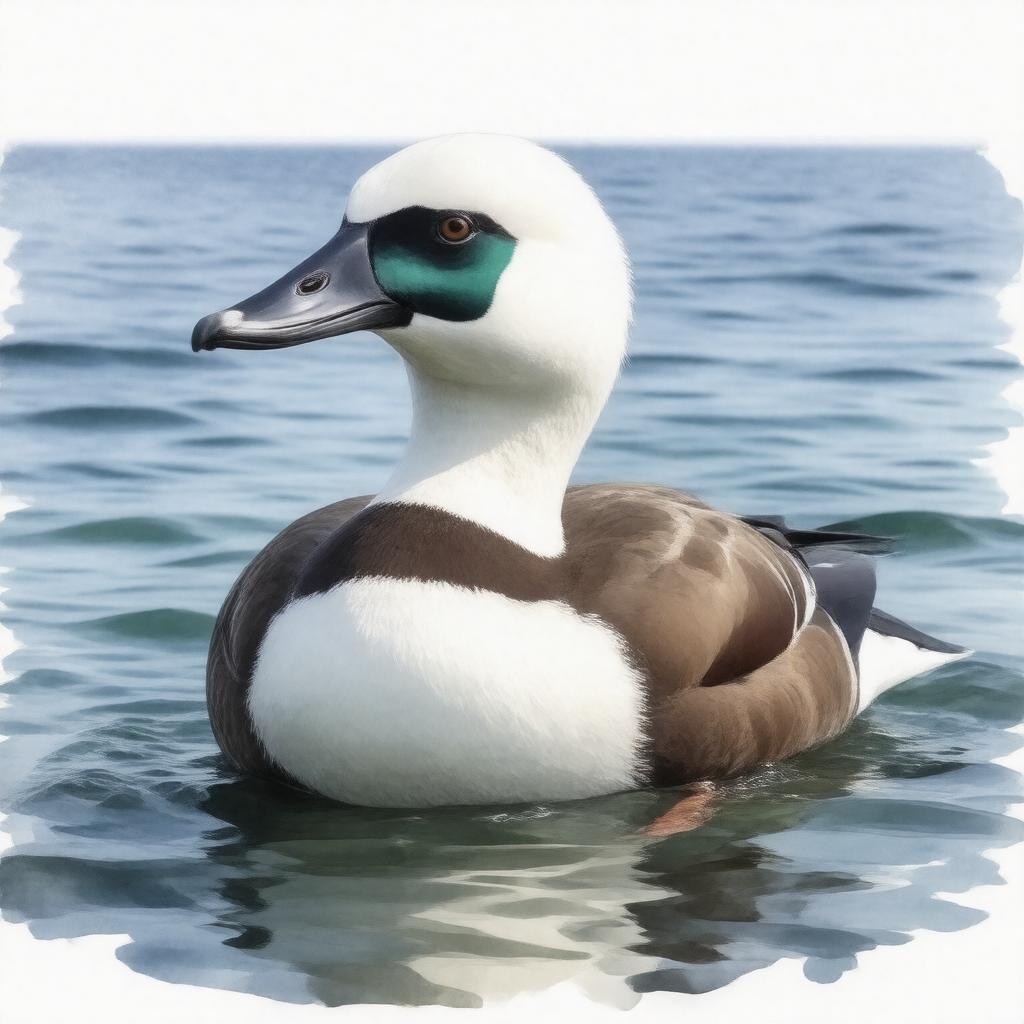Prompt
"Generate an image of a Steller's eider, a vulnerable sea duck species (Polysticta stelleri), in its natural Arctic coastal habitat, showcasing its distinctive white head with black eye patch and blue-green speculum, with a realistic and detailed representation, in a watercolor style."

